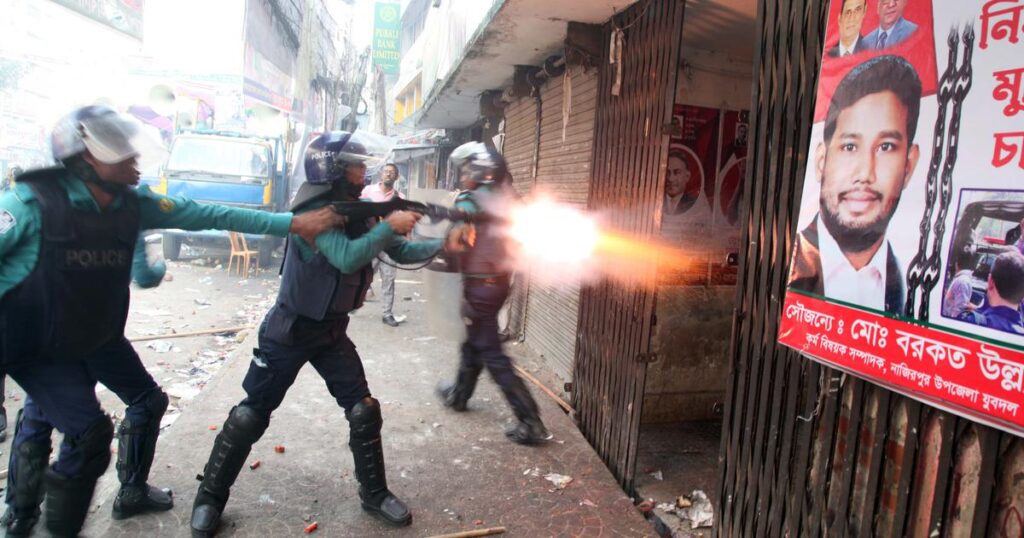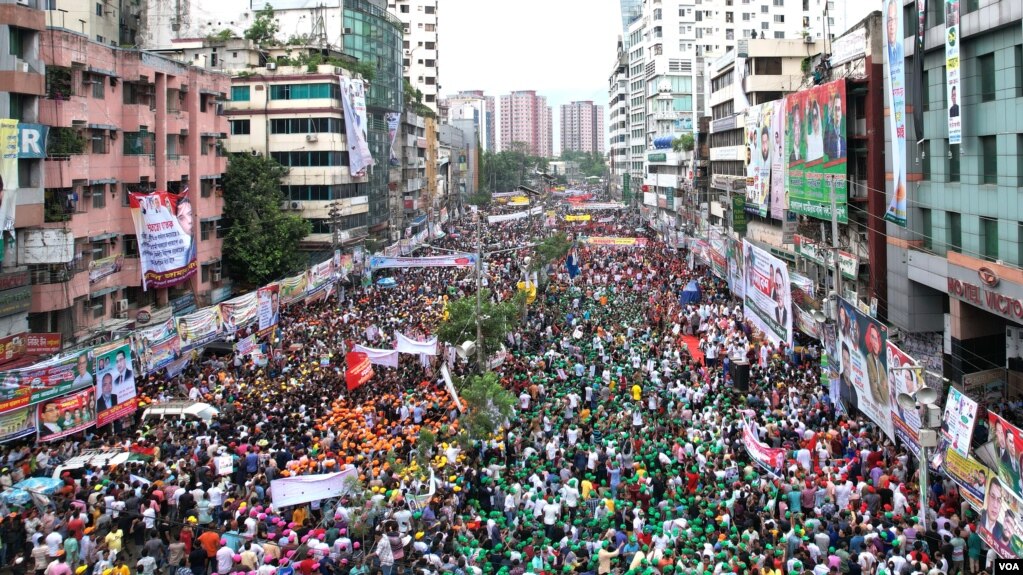By The Nexus Gazette.
DHAKA — In recent weeks, Bangladesh has been gripped by violent clashes stemming from student protests over government job quotas. The situation escalated rapidly, resulting in significant loss of life and injuries. Here’s an overview of the events:
The protests were triggered by a controversial quota system for government jobs. Students and activists demanded reforms, leading to widespread demonstrations across the country. The quota system, which reserves a significant percentage of government jobs for certain groups, has been criticized for being unfair and discriminatory, prompting a nationwide call for its overhaul. The violence began at the prestigious Dhaka University in the capital. Protests pitted students against pro-government groups and police. The campus, usually a hub of academic activity, turned into a battleground with clashes erupting frequently.

The clashes soon spread to other cities, resulting in casualties and injuries. Authorities struggled to contain the unrest, with incidents reported in Chittagong, Rajshahi, and Sylhet, among others.
Nearly 200 people lost their lives during the clashes, with 25 deaths reported in just over a week. The toll included both students and civilians, highlighting the widespread impact of the violence. Over 12,000 people were injured, underscoring the severity of the situation. Hospitals across the country were overwhelmed with the influx of wounded protesters and bystanders.
Security forces faced criticism for their handling of the protests. Deadly clashes occurred between protesters and pro-government supporters, leading to further casualties. Human rights organizations have accused the authorities of excessive force and brutality.

The government imposed an internet blackout, exacerbating communication challenges and restricting access to information. This move was widely condemned as an attempt to stifle dissent and control the narrative.
Prime Minister Sheikh Hasina faced mounting pressure as the protests intensified. Calls for her resignation echoed across the nation. Despite the turmoil, few believe that Hasina will step down or be removed from office. Her administration has remained steadfast, though the political climate remains tense.
The violence in Bangladesh underscores the need for dialogue, reform, and accountability. As the nation grapples with the aftermath, healing and reconciliation remain critical priorities. The student protests have brought to light deep-seated issues within the country’s governance and social structure, necessitating a comprehensive approach to address these challenges.
Resources:
1.https://apnews.com/article/bangladesh-campus-violence-hasina-bc513b6d68cf5b94cfd898f3c7f153d2
2.https://www.hrw.org/news/2024/07/22/bangladesh-security-forces-target-unarmed-students
3.https://time.com/7003130/bangladesh-student-protests-police-job-quota-hasina-awami-league-razakars/